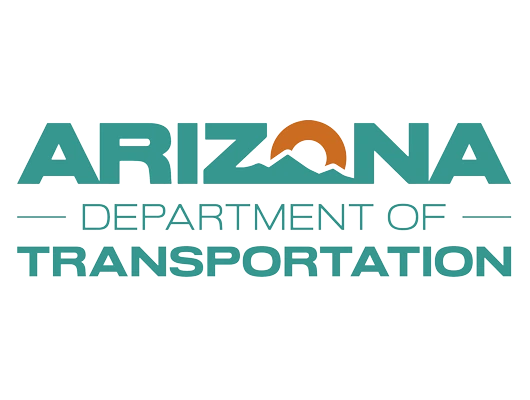As cryptocurrency markets skyrocket in reaction to the election results, Pinal County stakeholders are examining how new federal crypto policies could impact local development. The proposed Bitcoin Act and President-Elect Trump’s crypto initiatives arrive at a time of significant market interest in digital assets.

transforming government crypto holdings
The Bitcoin Act, introduced by Senator Lummis (Republican) and endorsed by Trump, would establish a Strategic Bitcoin Reserve, a network of secure storage facilities across the United States. The government currently holds approximately 210,000 Bitcoin, representing 1% of the total supply that will ever exist.
Key provisions include:
- Mandatory 20-year minimum holding period for government Bitcoin
- Creation of decentralized storage facilities
- Quarterly public reporting with cryptographic proof of reserves
- Option for states to participate through segregated accounts
Addressing the debt crisis

America’s fiscal situation has reached a critical point. The national debt has grown exponentially from $394 billion in 1924 to today’s staggering $35.46 trillion, recently accelerated by the Afghanistan and Iraq Wars, the 2008 Great Recession, and the COVID-19 pandemic, which alone caused government spending to surge 50% between 2019 and 2021. In addition, funding the recent wars in Israel and Ukraine has contributed to the debt crisis. The current debt maintenance costs are alarming – the government spends $1.133 trillion annually just on interest payments, consuming 17% of all federal spending. This means nearly one-fifth of tax dollars go toward servicing existing debt rather than funding government services or infrastructure. Future projections show an increase debt servicing costs.
Current fiscal challenges include:
- Federal revenue: $4.92 trillion (FY 2024)
- Federal spending: $6.75 trillion
- Current deficit: $1.83 trillion
- Interest payments: $1.133 trillion (17% of federal spending)
- GDP: $28.82 trillion (compared to $35.46T total debt)
In order to service the increasing cost of debt some expect the federal reserve to print money in order to service the debt which will cause more inflation. Some see cryptocurrencies as a hedge against this type of inflation.
Fiscal Context
Current government revenue sources:
- Individual income taxes: 49%
- Social Security/Medicare taxes: 35%
- Corporate and other taxes: 16%
The debt-to-GDP ratio stands at 123%, with GDP at $28.82 trillion, highlighting the need for innovative financial solutions.
Local Impact and Industry support
The Arizona Technology Council, representing over 750 of Arizona's cutting-edge technology companies, is positioning the state as a leader in financial technology innovation. Through its policy recommendations, the Council supports the development of Arizona's cryptocurrency sector by advocating for:
- Expansion of Arizona's pioneering Fintech Regulatory Sandbox program, which allows companies to test innovative products in a lighter regulatory environment
- Support for blockchain research through the Arizona Commerce Authority's Applied Research Centers program, which received $2.5 million in funding
- Engagement of the Arizona Corporation Commission in exploring blockchain applications for corporate records, securities issuance, and energy industry management
- Development of frameworks for decentralized corporate structures to help Arizona compete with other crypto-friendly states like Wyoming, Texas and Nevada
The Council's policies align with the Bitcoin Act's goals of creating clear regulatory frameworks while protecting private property rights in digital assets. This state-level support, combined with the proposed federal legislation, could position Arizona as a key hub in the national cryptocurrency landscape.
Funding the initiative
The Act proposes innovative funding mechanisms that don't require new taxes:
- Federal Reserve Reform:
- Reduces Federal Reserve surplus funds from $6.825 billion to $2.4 billion
- Directs $6 billion in annual Fed remittances (2025-2029) to Bitcoin purchases
- Bitcoin Purchase Program:
- Acquisition of up to 200,000 Bitcoin annually over five years
- Total target: 1 million Bitcoin
- Flexible purchase schedule based on market conditions
Regulatory changes
Trump's complementary proposals include:
- Immediate firing of SEC Chairman Gary Gensler on day one
- Appointment of a pro-crypto SEC Chairman
- Creation of a Presidential Crypto Advisory Council with industry leaders
- Ending "Operation Chokepoint 2.0"
- Blocking development of a Central Bank Digital Currency (CBDC)
- 100-day deadline for new regulatory guidance
- Framework for stable coin development and expansion
- Protection of private property rights in digital assets
- Shutting down anti-crypto "persecution" from federal agencies
- Ensuring SEC works to "build the future, not block the future"
- Making clear regulatory guidelines through industry collaboration
[Note: This article reports on proposed legislation and policy initiatives. It does not constitute financial advice. Readers should conduct their own research and consult financial professionals for investment decisions.]
[Sources: Bitcoin Act of 2024, U.S. Treasury Fiscal Data, Arizona Technology Council 2025 Public Policy Guide]






